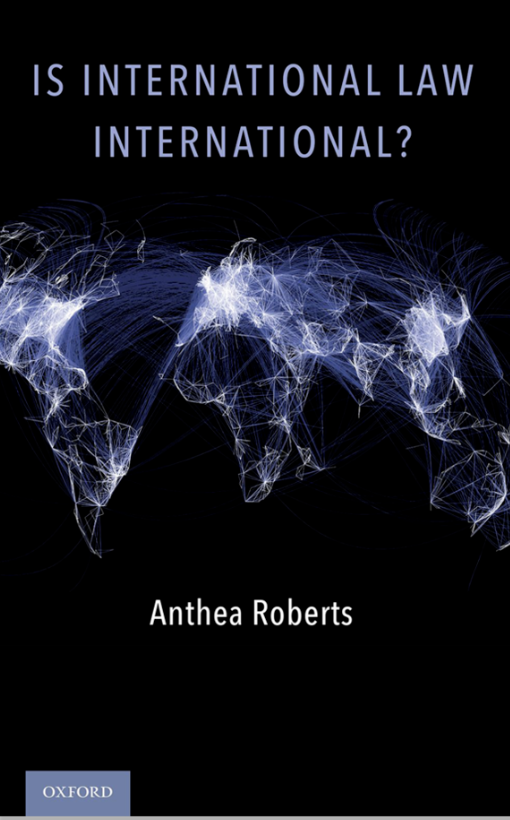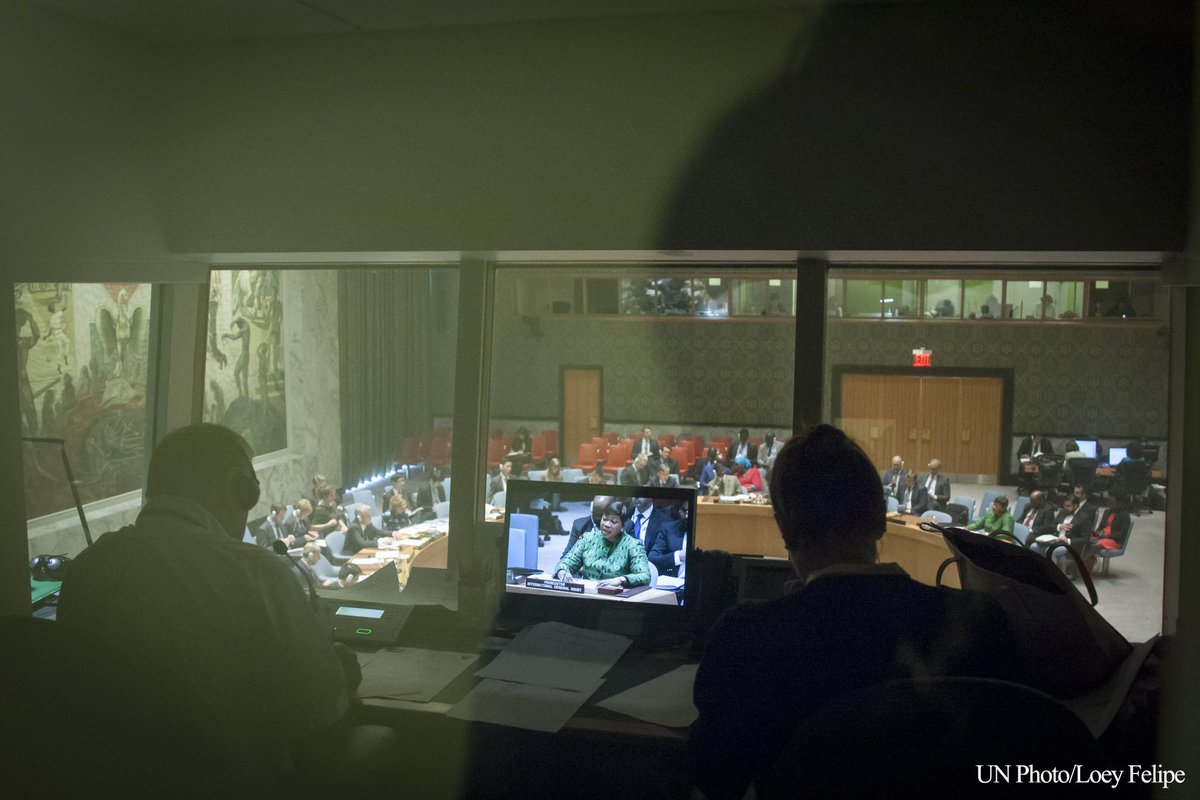This month’s Spotlight comes from Language, Culture and Justice Hub director Leigh Swigart. She brings us her reflections, along with those of other scholars, about the impacts of having a single language dominate a field that purports to both reflect and serve a global population characterized by enormous linguistic diversity.
It cannot be denied that the English language has become in the contemporary world what language scholars Ingrid Piller and Alexandra Grey have called the “hyper-central language of globalization”. That is, for the last half-century or so, English has become the medium that ensures communication across a whole constellation of languages. Furthermore, note Piller and Grey, “a native speaker of English has the advantage that this one language is likely to fulfill all their communicative needs on a local, national, international, and global scale.”
 This privileging of English and English speakers has left a pronounced mark on the field of international law and justice. In her provocative monograph Is International Law International?, Anthea Roberts describes how shifts toward English in both spoken and written modes “have clear distributional effects in terms of whom they privilege” (p. 260). Justina Uriburu succinctly captures the essence of what she calls “English-centrism” in the field: “The choice of language significantly determines the way in which international law is made, interpreted, and applied, what knowledge is produced by scholars, and the participants of the conversation.” Scholars Christian Tomuschat and Odile Amman have laid out specific ways in which the dominance of English not only determines which scholars have their work accepted by the most prominent journals and publishers of international legal scholarship, but also how narrowly conceived is this scholarship since the featured authors often cannot read and cite research beyond the “Anglosphere.” Recent Opinio Juris blogposts (here and here), by Alonso Gurmendi and Paula Baldini Miranda da Cruz, offer the perspectives of Latin American scholars who are directly impacted by both linguistic and cultural bias in the field: “We posit that peripheral scholars may be less represented at least partially because they communicate differently and have different things to say from those that are already part of the establishment of international law.”
This privileging of English and English speakers has left a pronounced mark on the field of international law and justice. In her provocative monograph Is International Law International?, Anthea Roberts describes how shifts toward English in both spoken and written modes “have clear distributional effects in terms of whom they privilege” (p. 260). Justina Uriburu succinctly captures the essence of what she calls “English-centrism” in the field: “The choice of language significantly determines the way in which international law is made, interpreted, and applied, what knowledge is produced by scholars, and the participants of the conversation.” Scholars Christian Tomuschat and Odile Amman have laid out specific ways in which the dominance of English not only determines which scholars have their work accepted by the most prominent journals and publishers of international legal scholarship, but also how narrowly conceived is this scholarship since the featured authors often cannot read and cite research beyond the “Anglosphere.” Recent Opinio Juris blogposts (here and here), by Alonso Gurmendi and Paula Baldini Miranda da Cruz, offer the perspectives of Latin American scholars who are directly impacted by both linguistic and cultural bias in the field: “We posit that peripheral scholars may be less represented at least partially because they communicate differently and have different things to say from those that are already part of the establishment of international law.” My own contribution to this debate is a piece entitled “The Impacts of English-Language Hegemony at the International Criminal Court” (open-access version available here), a chapter in the soon-to-be published book, International Criminal Justice – A Counter-Hegemonic Project? (Springer 2023). Based on a multi-year ethnographic project on how the ICC addresses diverse language challenges, this chapter explores the impact of the uneven status of the Court’s working languages, English and French, on those who work at and with the ICC, as well as on what the Court conveys to the world through the communications of its top officials, its judgments, its outreach activities, and its everyday language choices. I aim to show that English-language hegemony is not only entrenched but has detrimental effects for the ICC in both practical and symbolic spheres, rendering the Court less efficient while also undermining its mission as a global institution. (The 2020 report of the Independent Expert Review of the ICC notes in its very short section on “Multilingualism” that more French speakers should be recruited as staff but presents this imbalance as a strictly practical problem). I also contend that while the ICC’s “constituents” as well as its own staff speak many languages, the institution itself operates according to a monolingual ideology, one that implicitly considers communication via a single and discrete language as expected, normal and desirable.
My own contribution to this debate is a piece entitled “The Impacts of English-Language Hegemony at the International Criminal Court” (open-access version available here), a chapter in the soon-to-be published book, International Criminal Justice – A Counter-Hegemonic Project? (Springer 2023). Based on a multi-year ethnographic project on how the ICC addresses diverse language challenges, this chapter explores the impact of the uneven status of the Court’s working languages, English and French, on those who work at and with the ICC, as well as on what the Court conveys to the world through the communications of its top officials, its judgments, its outreach activities, and its everyday language choices. I aim to show that English-language hegemony is not only entrenched but has detrimental effects for the ICC in both practical and symbolic spheres, rendering the Court less efficient while also undermining its mission as a global institution. (The 2020 report of the Independent Expert Review of the ICC notes in its very short section on “Multilingualism” that more French speakers should be recruited as staff but presents this imbalance as a strictly practical problem). I also contend that while the ICC’s “constituents” as well as its own staff speak many languages, the institution itself operates according to a monolingual ideology, one that implicitly considers communication via a single and discrete language as expected, normal and desirable.
What Amman eloquently asserts (p. 30) about international legal scholarship can be extended, I believe, to the entire field of international justice, across its full range of instruments, institutions, processes and communicative acts – “[international law] cannot afford to ignore the language biases that it creates and perpetuates unless it is willing to sacrifice its own credibility and relevance. If we do not address language bias, the legality and legitimacy of international law will continue to suffer.”
